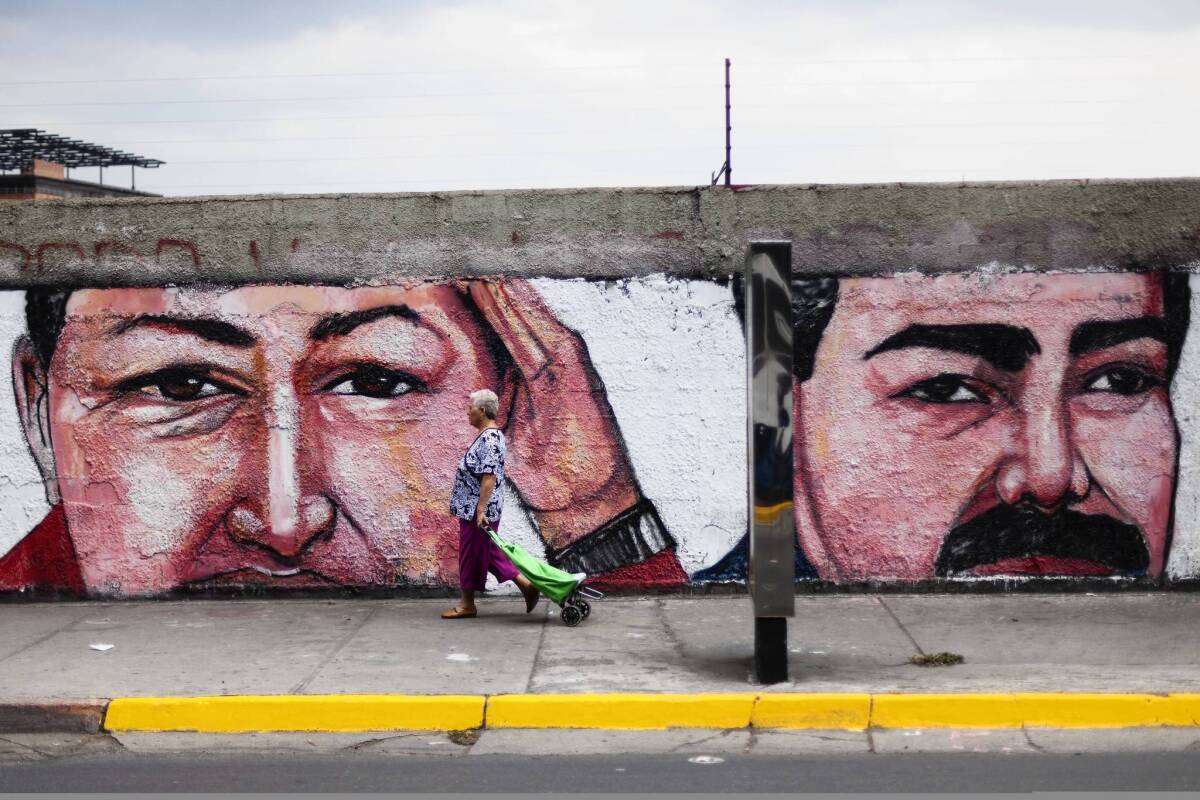Venezuelan judge rejects call for recount

- Share via
CARACAS, Venezuela — Even before any legal motion was filed, the pro-government head of Venezuela’s Supreme Court on Wednesday slapped down demands for a recount of the hotly contested presidential election that gave a narrow victory to Hugo Chavez’s acolyte, Nicolas Maduro.
It was another blow to efforts to challenge Maduro’s win and comes as opposition members say they also fear a wave of political and legal repression.
The United States, meanwhile, said it had not yet decided whether to recognize Maduro as Chavez’s duly elected successor, stoking rancor in the Maduro camp that was directed at Washington.
Tension was on high boil in many parts of the country, with Maduro portraying his rivals as fascists and subversives and opposition challenger Henrique Capriles refusing to back down on his demand for a recount of Sunday’s vote. The crisis threatens the stability in the oil-rich but violent, crime-ridden nation.
Capriles is governor of Miranda state, and armed supporters of Maduro’s socialist party surrounded the Miranda state government headquarters for a second day Wednesday. They noisily demanded that Capriles be fired, echoing declarations by Maduro that he no longer recognized his opponent as a governor.
Seven people were killed and 61 injured in postelection clashes Monday, and an eighth person died of injuries Wednesday, the government said.
Capriles canceled a march he had planned for Wednesday, and instead supporters repeated a second night of cacerolazos, the banging of pots and pans in protest, a tactic used against Latin strongmen from Chile’s Augusto Pinochet to Panama’s Manuel Noriega. At 8 p.m., the clanging cacophony began, along with fireworks by government supporters attempting to drown out the opponents.
Opposition legislators also charged on Wednesday that Diosdado Cabello, another staunch Chavez ally and president of the National Assembly, was removing them from committee chairmanships as a way to silence their voices. A couple have said they’ve been beaten.
And another top opposition leader, Leopoldo Lopez, tweeted a photo of what he said was a warrant for his arrest.
Chavez, a rather flamboyant populist leader of Venezuela since 1999, died of cancer March 5, but not before loading key state institutions, such as the electoral tribunal and the Supreme Court, with his supporters.
Luisa Estela Morales, president of the Venezuela Supreme Court, said during a news conference Wednesday that it was impossible to conduct a ballot-by-ballot recount because the voting system is automated. “Those who have been thinking this could happen were fooling themselves,” she said.
She made her comments even though the opposition had not formally filed a petition for a recount.
It was Morales who issued a perplexing ruling last month that allowed Maduro to assume the presidency immediately upon Chavez’s death, a controversial decision that critics said sidestepped the constitution and was aimed at making his election a fait accompli.
Capriles has listed what he claims are numerous irregularities that could affect a million votes. According to the official count, Maduro won by about 262,000 votes of 14.9 million cast, or 1.8 percentage points.
In Washington, U.S. Secretary of State John F. Kerry said at a congressional hearing that the administration supported a recount and that it was premature to recognize a Maduro victory.
“Obviously, if there are huge irregularities, we are going to have serious questions about the viability of that government,” he said.
Maduro is scheduled to be sworn in Friday, with delegations in attendance from most of Latin America, which has recognized his election, and Iran, among other countries.
He was quickly dismissive of the hesitant comments coming out of Washington. “We don’t care about your opinion,” he said before a meeting of governors. “We have decided to be free, and we will be free with or without you.”
Numerous international groups such as the Organization of American States, the European Union and the New York-based Human Rights Watch have called for dialogue and a shunning of violence. None of the organizations has much influence in Venezuela, however.
Times staff writer Wilkinson reported from Mexico City and special correspondent Mogollon from Caracas.
More to Read
Sign up for Essential California
The most important California stories and recommendations in your inbox every morning.
You may occasionally receive promotional content from the Los Angeles Times.














